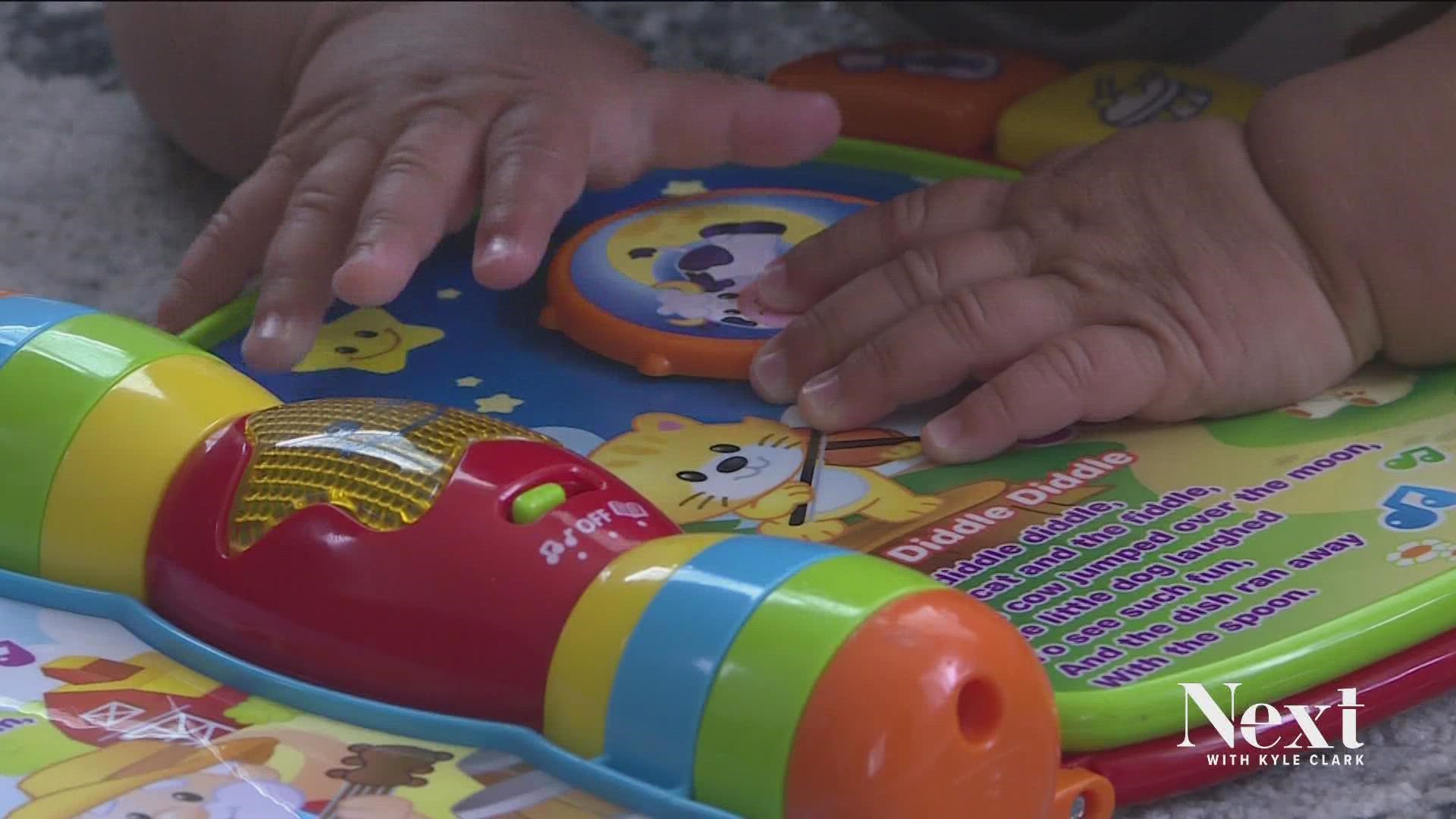DENVER — Child care is unattainable for so many people. It's too expensive, there aren't any openings, a teacher shortage.
Now the City of Denver is tapping the other side, the grandparents, aunts, uncles, and neighbors helping raise kids, as a part of the solution for child care.
Cesiah Hernandez has been an FFN for 17 years. The term may seem unfamiliar but it's very common. We're talking about family, friends and neighbors taking care of kids.
"I couldn't afford day care," said Hernandez. "So I stayed at home, cared for my family's children, my brother's for example, and my children at the same time."
She has always had a passion to care for kids and during the pandemic Hernandez connected with the Colorado Statewide Parent Coalition to go through their training called PASO.
"Providers who take PASO learn about nutrition, developmental stages, how to identify developmental delays and how to speak to parents about that," said the coalition's executive director, Lorena Garcia.
"In Colorado, in the city of Denver, about half of the children that actually need child care have access to licensed childcare spot, whether that's in a licensed child care center or licensed childcare at home," she added.
The City of Denver has also been tracking the problem.
"During the pandemic 67% of licensed child care facilities were closed," said Melissa Janiszewki, the executive director of the Office of Children's Affairs. "We knew children were being cared for by somebody and most likely a family friend or neighbors."
So the city paired up with the coalition to scale up support for these providers, so more people could go through PASO.
The $852,000 federal grants covers 120 providers' training, who can reach as many as 480 kids. Stipends to get a child development associate certificate and support a program, Janiszewki believes, will help ease the child care shortage.
"I hope parents know we are listening to them, we know there is an issue," she said.
"Children will receive high quality care no matter where they are," said Garcia.
Garcia said this is particularly important when other child care options are out of reach.
"Most of our kids are little tiny black and brown kiddos who start school already behind their white peers," said Garcia. "There are a lot of factors. Most of the children that end up starting already behind are children who live in areas where there isn't easy access to licensed care facilities or high-quality care. Maybe the families can't afford it because of generational poverty or systems don't allow it."
Cesiah went through the PASO program herself and said it changed the way she works with children and focusing on researched activities she knows will support their development.
"The family who I used to work for," she said. "Said 'I wish there are more Cesiahs out there.' To me there are more Cesiahs out there, we need to support them."
Hernandez now works for the coalition and is a trainer herself and has seen students start to explore new career paths.
"[They] went to work in a school, preschool," she said. "It's a new world of opportunities for people."
The City of Denver said this is not only a more affordable option for families but also another career path.
Janiszewki said those who do get a CDA certificate can be connected to more city resources, like food benefits for kids and help buying supplies, and support to explore turning this into a career.
When it comes to safety, this training program does teach first aid and CPR. But is also relying on a long-standing system of asking someone a family trusts and knows to care for their children when they have to step away.
Families have the option to opt into the PASO training to enhance that care at home.
Garcia said the training is translated into multiple languages and that they pull examples from different cultures and incorporate them in the curriculum.
She also said providers had started asking for more education and training to better care for children with disabilities and their families.
The city grant will also help develop curriculum for people taking care of kids with disabilities, which is around one-third of FFN providers in Denver.
That pilot curriculum should be ready in January.
SUGGESTED VIDEOS: Full Episodes of Next with Kyle Clark

